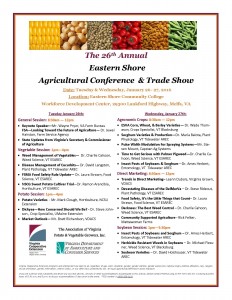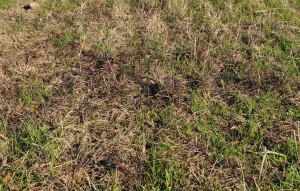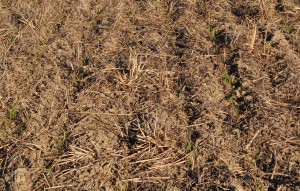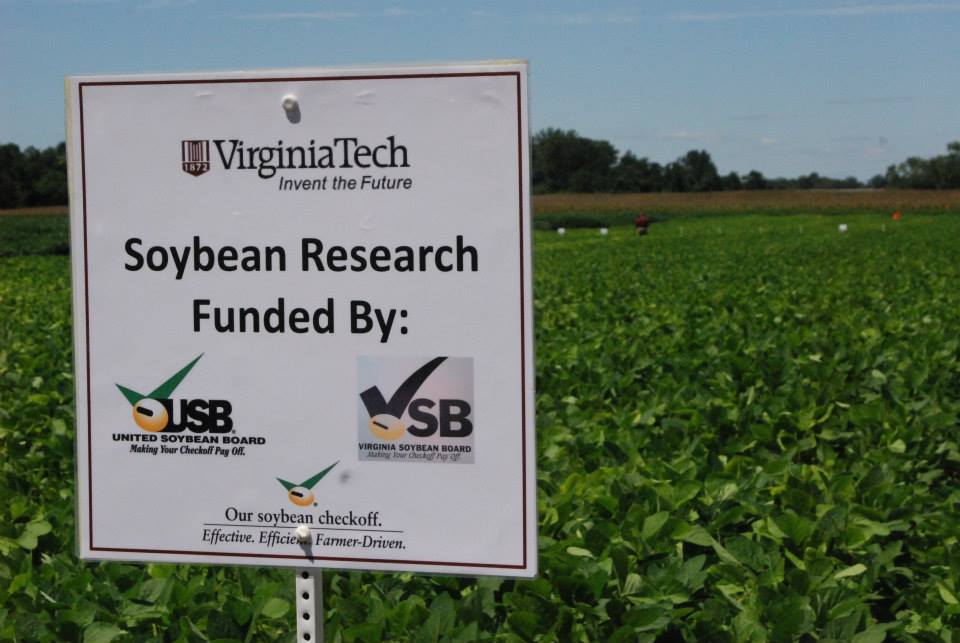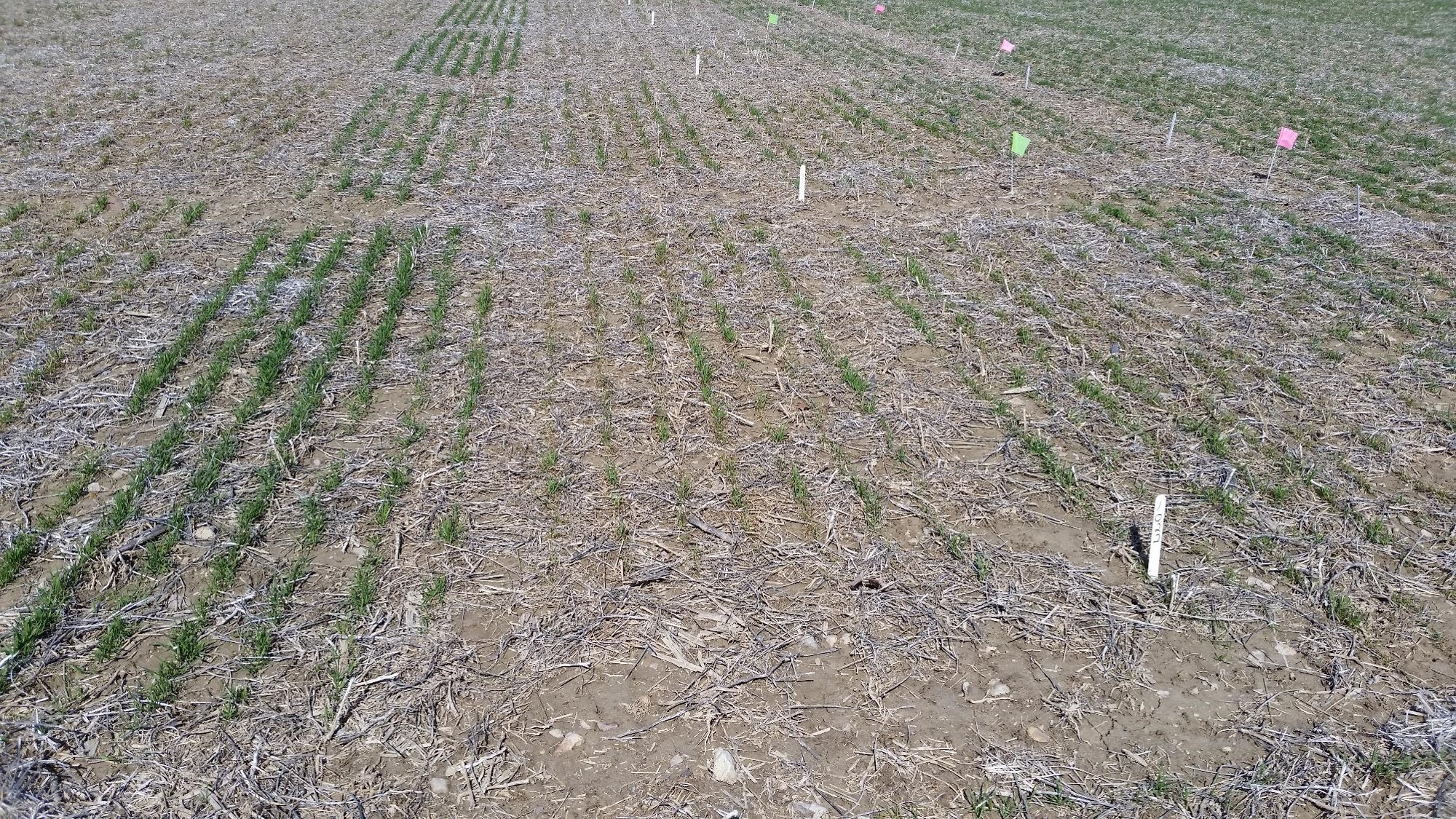VIRGINIA SOYBEAN FIELD DAY
Thursday August 20, 2015
Eastern Virginia Agricultural Research & Extension Center
2229 Menokin Road
Warsaw, VA 22572
(804) 333-3485
Sponsored by
Virginia Soybean Association
Virginia Agricultural Experiment Station
Virginia Cooperative Extension
Join us to see the latest research on soybean varieties, disease and weed management, IPM and sorghum varieties. Experts will also demonstrate no-till drill maintenance and update you on the mid-Atlantic double crop initiative. Registration begins at 8:00 am and field tours begin at 8:50 am. The program will end at noon with a delicious meal by Nixon Catering.
Topics include:
– Soybean Disease Management – Dr. Hillary Mehl
– Soybean Weed Management – Dr. Mike Flessner
– Soybean Insect IPM – Mr. Mike Parish and Drs. Sean Malone and Ames Herbert
– No-Till Drill Maintenance – Mr. Keith Burgess
– Grain Sorghum Management – Dr. Joseph Oakes
– Roundup-Ready Public Soybean Varieties – Dr. Bo Zhang
– Mid-Atlantic Double-Crop Soybean Initiative – Dr. David Holshouser
We hope to see you there!


